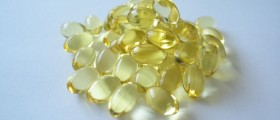
Information on Lycopene
Lycopene is a natural chemical which is responsible for the red color in fresh vegetables and fruits and it comes from the group of pigments called carotenoids. It can be commonly found in tomatoes, pink grapefruits, watermelons, pink guavas and apricots. When the tomatoes get exposed to heat during the processes of producing ketchup, tomato paste or tomato juice, the lycopene gets transformed and it actually becomes much easier for the human body to use. The lycopene from numerous different supplements usually comes in the same form as the one commonly found in food. Lycopene is known for its strong antioxidant properties and that is why it is very beneficial in protecting the cells in the human body from damage.
Usage of lycopene
Lycopene can obviously be used to treat lycopene deficiency. It may also come in very handy when it comes to the prevention of diabetes. Lycopene can also be used for the prevention and treatment of numerous different types of cancer. First and foremost, it is efficient in preventing the progression of prostate cancer. It is also suggested that it may be helpful in fighting breast cancer to a certain degree as well. Some studies have shown that it may be beneficial for the prevention and the treatment of bladder cancer too.
Since lycopene comes from the group of carotenoids it can come in real handy when it comes to the prevention of ovarian cancer in premenopausal female patients. Lycopene can also be beneficial in treating and preventing the pancreatic cancer. Certain studies have shown that lycopene can be very beneficial in preventing lung cancer in nonsmoking individuals. Some sources claim that it can also be helpful in prevention of the rectum or colon cancer. Lycopene is also very efficient in relieving and reducing the symptoms of oral leukoplakia.
Some studies have shown that lycopene may also be of great help lowering the risk of numerous heart diseases. Some sources claim that it can be beneficial for the treatment and prevention of the age related maculopathy. It also can be used for the treatment of certain types of human papilloma virus infections. Other conditions that can be treated and prevented by using lycopene include catararacts, asthma attacks, and atherosclerosis.
Side Effects
Lycopene can be safe if taken orally in moderate amounts. One should not ingest more than 30 mg of lycopene on a daily basis, while the treatment should last no more than 8 weeks. Those who suffer from prostate cancer should avoid lycopene. Pregnant and breastfeeding women should avoid lycopene as well.

















Your thoughts on this
Loading...